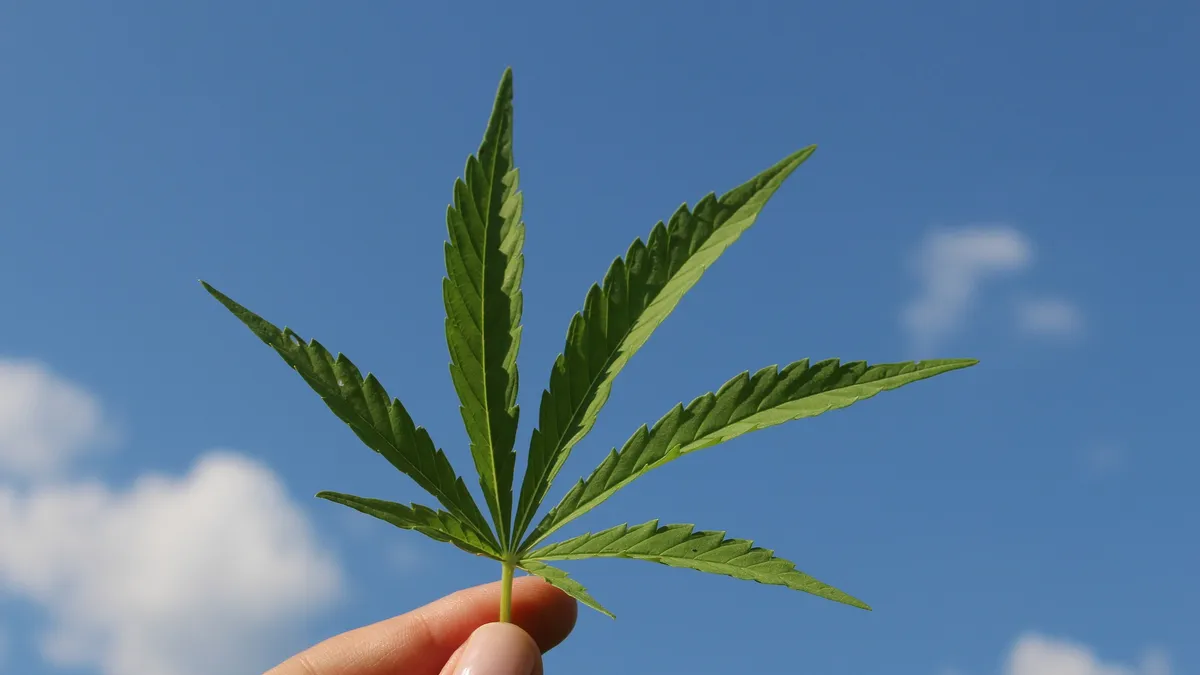Welcome to Supply Chain Dive's newest column! Every Friday through the end of 2018, we'll be taking a sideways look at the supply chain. If your supply chain has unexpected consequences, oddities or surprising quirks, we want to hear about it!
There’s a common refrain in supply chain management, which is and always will be true: The only thing you can be absolutely sure about your forecast is that it will be wrong.
In Canada this year, the rise of legal cannabis is likely to throw off many forecasts. Recreational cannabis became legal in Canada on Wednesday. And as with California’s legalization last year, there are likely to be fits and starts to the market, price and supply fluctuations, lots of confusion and few hard numbers for months.
But supply chains tasked with planning for seasons, if not years, ahead will have to take a guess at how legal cannabis will affect their industries.
Bruce Linton, CEO of major Canadian cannabis grower Canopy Growth called legal cannabis a $500 billion disruption because it has the capacity to compete with other categories of consumables and infiltrate even more.
"When you look at every industry where pot could potentially compete, there might be as much as a half a trillion dollars in sales that are going to be disrupted," said Linton on CNN’s Mad Money.
The cannabis supply chain in Canada may be woefully ill-equipped at the moment, but it’s not the only supply chain affected by legalization. Other businesses are likely to be significantly impacted if not by incorporating cannabis, then almost certainly by competing with it – let’s take a look.
Bud over booze. In many cities with recreational cannabis dispensaries, liquor sales are growing more slowly, and cannabis is even outselling alcohol in some instances. So it's no wonder alcohol companies are rushing to get in on this new market. Constellation Brands (think Corona), Molson Coors, Villa (creator of Blue Moon beer) and major distributor Southern Glazer are all making plans to get into cannabis and with good reason: Before legalization, Canadian government statisticians estimated that illegal cannabis market would have contributed $6 billion to the country’s GDP (were it legal) — almost the same as beer.
Eat and drink your green. Big food companies have been generally quiet on the cannabis front, though experts say that they will likely eventually take over the edibles market. California consumers alone spent $180 million in cannabis-infused food and beverages in 2016, and that number increased 67% from February 2016 to February 2017 — largely before legalization.
Cannabis cure-all? Some pharmaceutical companies have actively lobbied against legalization in U.S. states, but they may be changing their tune, especially after a 2016 study found that prescriptions for painkillers, antidepressants and more decreased dramatically in states where medical cannabis was legal. Bonus — substituting cannabis for these prescriptions saved Medicare $165 million.
What's a supply chain to do?
The truth is we know very little about what widespread, legal cannabis will do to a developed Western economy – and what industries it will change.
In some ways, the U.S. is lucky. The state-by-state approvals, necessitated since there has been little movement toward legalization at the federal level, have tempered the impact and helped regulators learn what could go wrong on a smaller scale. And if California’s legalization experience is any proof, the transition from a black market product to a legal product can be hard and slow for entrenched players.
But Canada legalizing in one large swathe will offer all kinds of lessons for what a fully cannabis-friendly U.S. might look like. With adjacent businesses placing bets, the case studies are building.
So what is legal cannabis to a non-cannabis supply chain? It may help to think of it as yet another source of volatility – like a hurricane or an Instagram post from a Kardashian sister. It’s not clear which supply chains will be directly affected outside the obvious, but whether or not drastic changes in consumer behavior ensue, it is clear that supply chains should be paying attention.
Is your supply chain watching the spread of legal cannabis? Let us know what you’re watching for!














